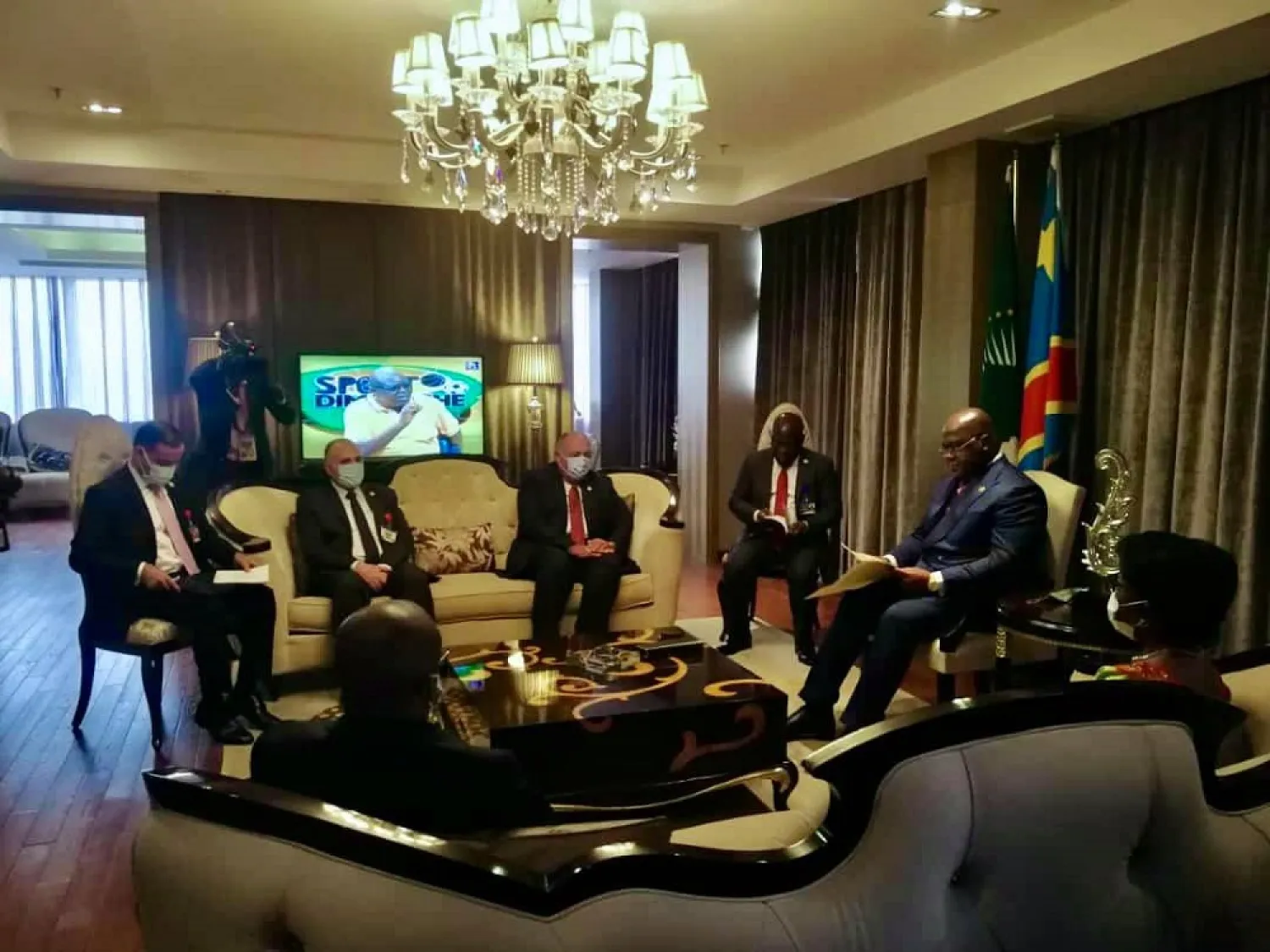Foreign and irrigation ministers from Egypt, Ethiopia and Sudan held talks in Kinshasa on Sunday over the controversial mega dam Addis Ababa is building on the Blue Nile.
Congolese President Felix Tshisekedi, who took over the chair of the African Union in February, expressed hope for the success of the talks by offering technical and judicial proposals, pending a final agreement on the issue.
In a press conference on Sunday, Tshisekedi said the differences over the Grand Ethiopian Renaissance Dam (GERD) should be seen as an opportunity for greater rapprochement among peoples and means for solid cooperation between regional countries.
He called on the participating delegations to “make a fresh start, to open one or several windows of hope, to seize every opportunity.”
The AU chair also stressed the importance of finding ways to hold talks, exchange views and information and reach an agreement that guarantees the rights and interests of the three countries.
Tshisekedi pointed to willingness of the participants “to seek African solutions for African problems together.”
He concluded by urging relevant officials to translate the people’s will on ground to reach an agreement on the decade-long dispute.
On Saturday, experts from Addis Ababa, Khartoum, Cairo and the AU held preliminary meetings at the level of foreign and irrigation ministers to discuss reaching an agreement over the operation and filling of the GERD.
Tshisekedi later received both Egyptian Foreign Minister Sameh Shoukry and Minister of Water Resources and Irrigation Mohamed Abdel Aty.
Shoukry handed Tshisekedi a letter from President Abdel Fattah al-Sisi in which he stressed Egypt’s keenness on the success of the negotiations.
According to a Foreign Ministry statement, Cairo welcomes the Democratic Republic of the Congo’s efforts to launch a negotiation process that would eventually lead to a fair, balanced and legally binding agreement that guarantees the interests of the three countries, bolsters complementarity and cooperation relations and deepens the bonds of brotherhood among their peoples.
Sisi highlighted his country’s sincere political will to reach the desired agreement as soon as possible and before the upcoming rainy season, voicing full support for Tshisekedi’s efforts in this regard.
The Nile, the world’s longest river, is a lifeline supplying both water and electricity to the 10 countries it crosses.
Upstream Ethiopia says hydroelectric power produced by the GERD will be vital to meet the energy needs of its 110 million people.
Egypt, which depends on the Nile for about 97 percent of its irrigation and drinking water, sees the dam as an existential threat.
Sudan, also downstream, fears its own dams will be compromised if Ethiopia proceeds with filling the GERD before a deal is reached.









